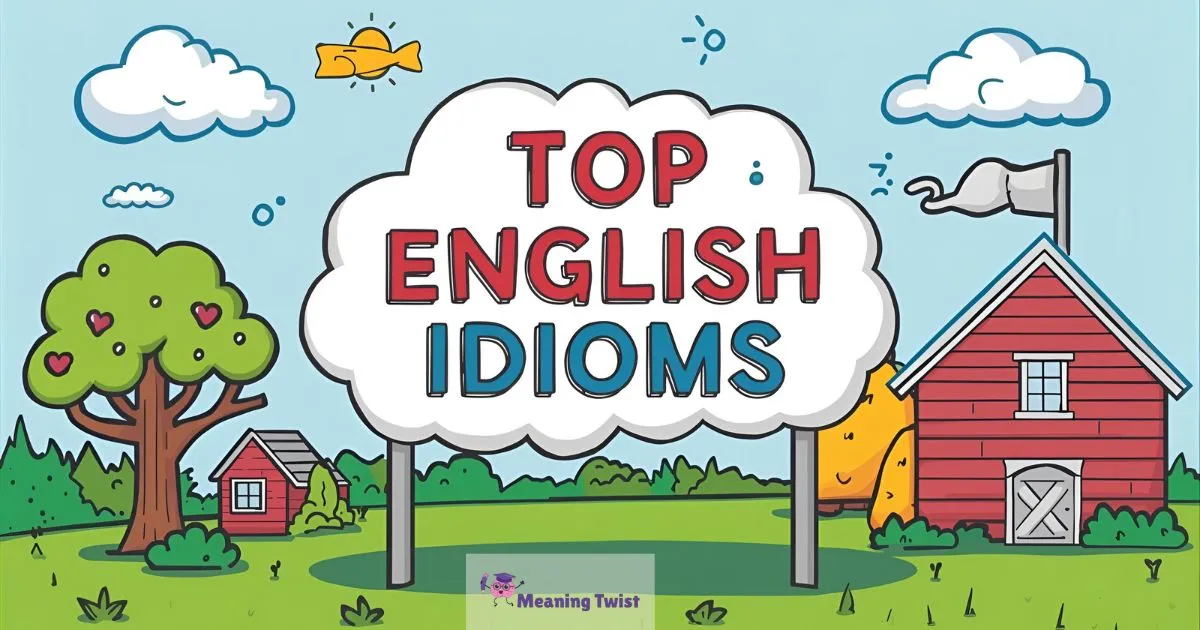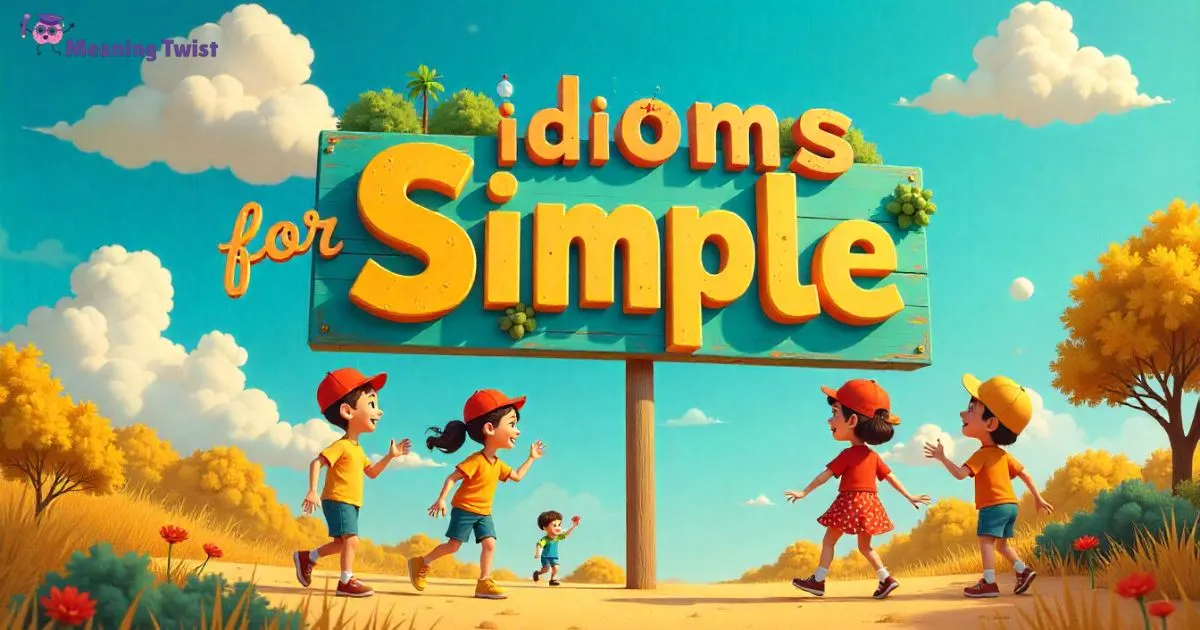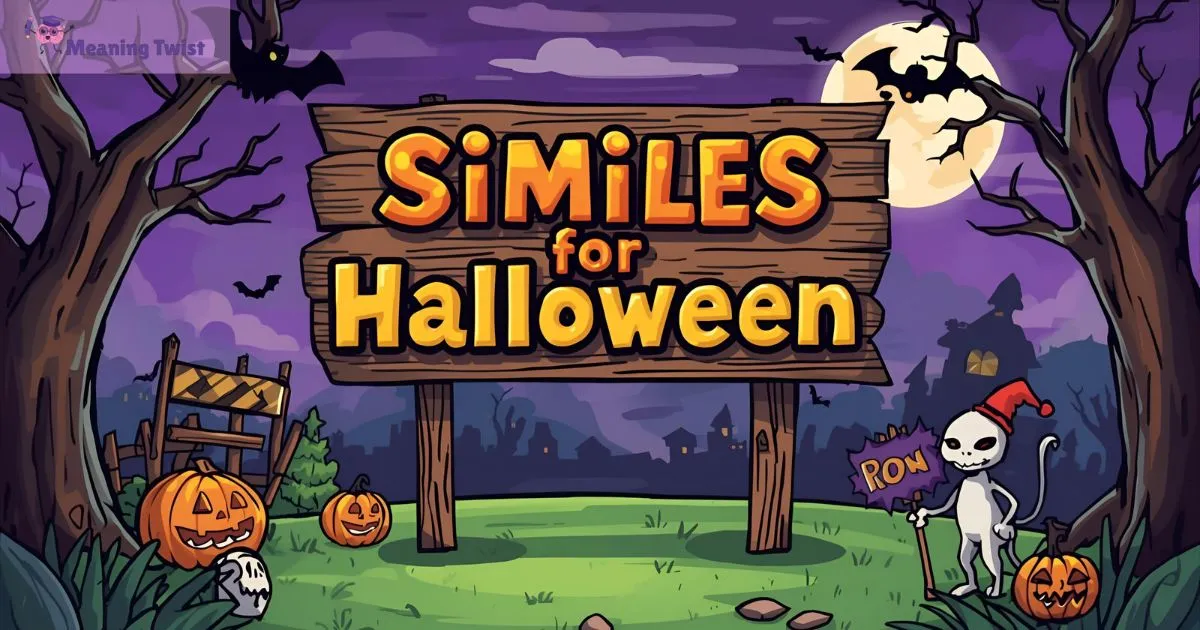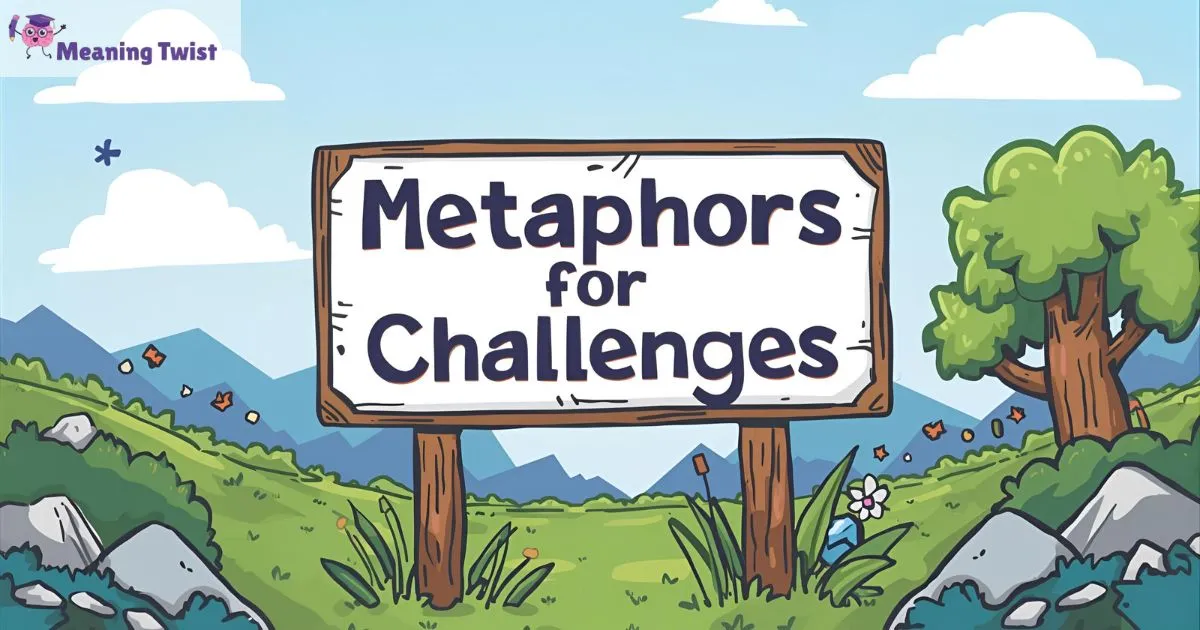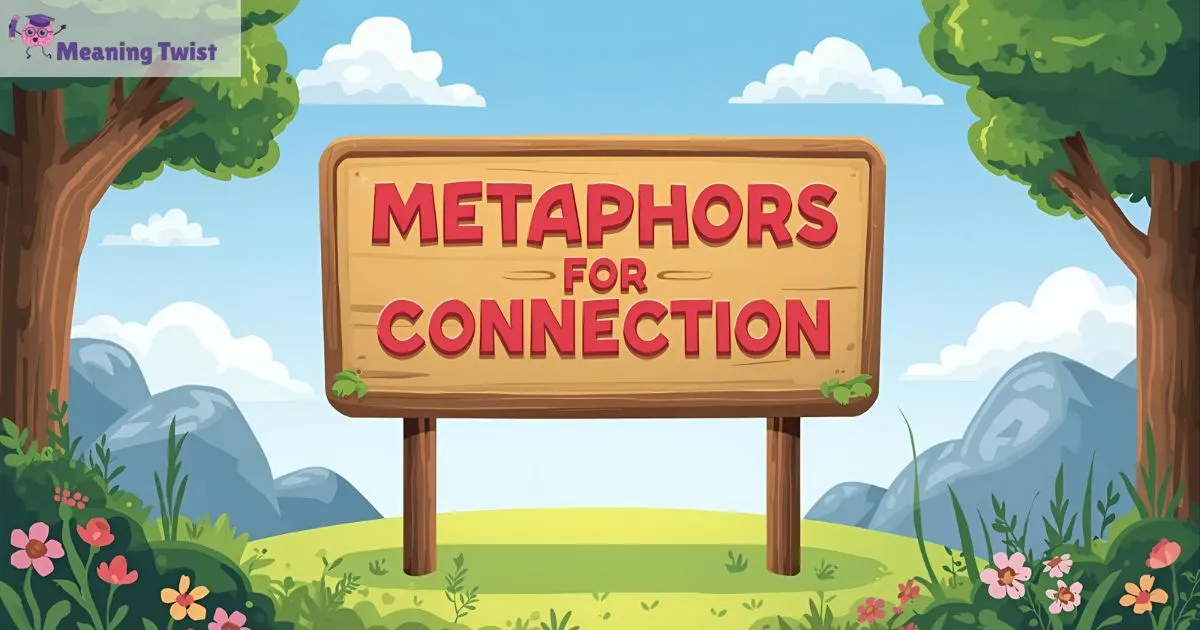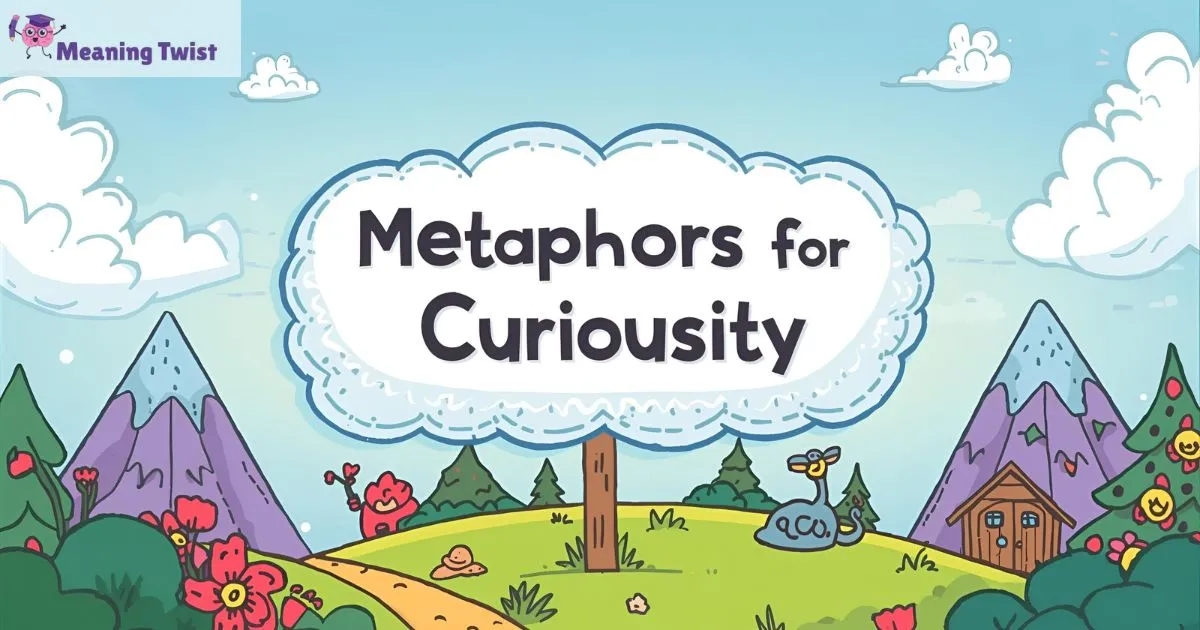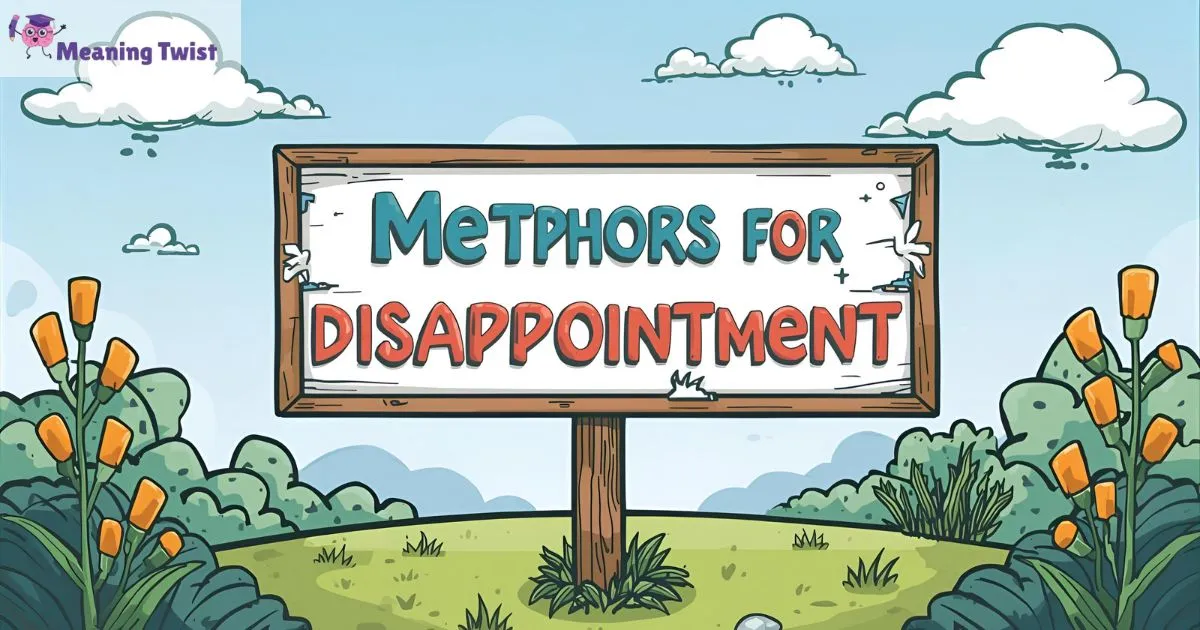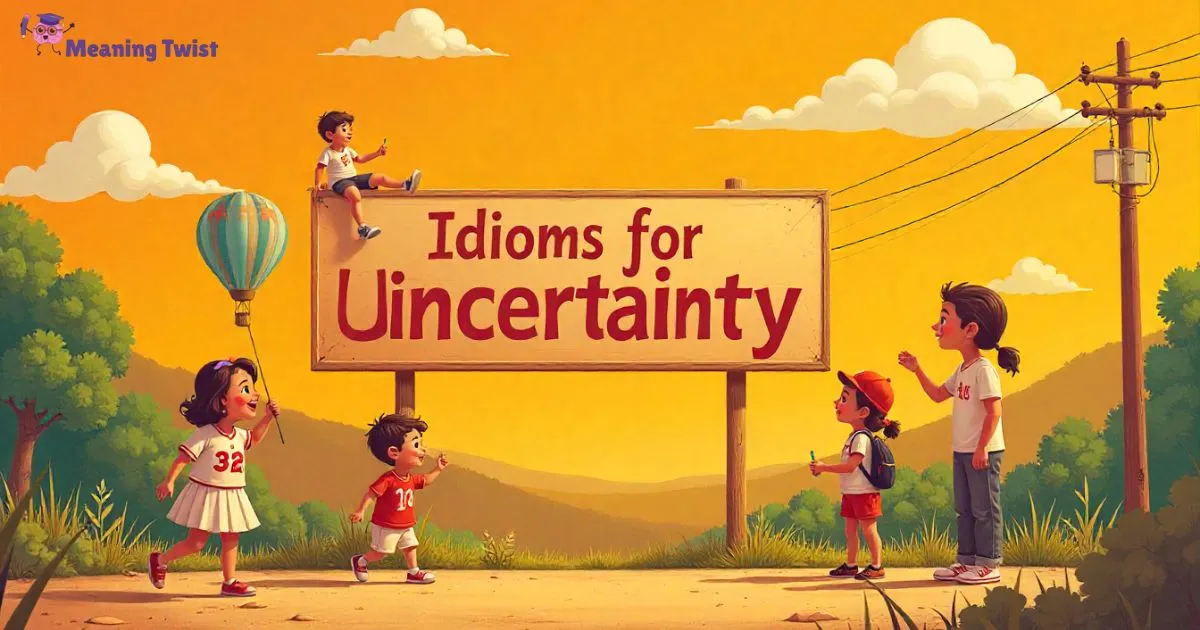
Life rarely follows a straight path. Just when you think you’ve got everything figured out, uncertainty sneaks in and changes the game. Whether it’s about a career choice, a relationship, or tomorrow’s weather, we often find ourselves unsure of what’s next. That’s where idioms for uncertainty come in handy. They help us express confusion, hesitation, or unpredictability with creativity and color. Instead of saying, “I’m not sure,” you can say, “I’m in two minds about it” or “It’s up in the air.” Suddenly, your words sound more vivid, natural, and relatable.
Using idioms for uncertainty doesn’t just make your communication more fluent; it makes it more human. They reveal personality, honesty, and emotion — showing that sometimes, it’s okay not to have all the answers. Whether you’re on the fence, in limbo, or walking on thin ice, these idioms let you talk about doubt in a way that connects, entertains, and stays memorable.
1. Up in the Air
Meaning: When something is undecided or not settled yet.
Scenario: You’re waiting to hear if your vacation leave will be approved.
Tip: Use it for plans or outcomes that haven’t been finalized.
Real-life Example: Our trip to Dubai is still up in the air — the tickets are ready, but we’re waiting for my boss’s approval. I hope it works out soon because I’ve already started packing in my head!
2. On the Fence
Meaning: Unable to decide between two options.
Scenario: You’re unsure whether to accept a new job offer.
Tip: Great for showing hesitation or indecision.
Real-life Example: I’m really on the fence about switching jobs. The new role pays more, but I love my current team. It’s tough when both sides have pros and cons.
3. Touch and Go
Meaning: A situation where the outcome is very uncertain.
Scenario: You’re unsure if your project will meet the deadline.
Tip: Use for tense situations with unclear results.
Real-life Example: It was touch and go for a while during the final stage of our project. We weren’t sure if we’d make it, but somehow, everything fell into place just in time.
4. In Two Minds
Meaning: Unable to decide what to do.
Scenario: Choosing between two universities or career paths.
Tip: Perfect for expressing personal indecision.
Real-life Example: I’m in two minds about studying abroad. It’s exciting, but leaving home feels overwhelming. Every time I think I’ve decided, I change my mind again.
5. Walking on Thin Ice
Meaning: Taking a risk that could easily go wrong.
Scenario: You’re late to work again, and your boss has already warned you.
Tip: Use for situations where consequences are uncertain.
Real-life Example: I’ve been arriving late all week, and I know I’m walking on thin ice with my manager. One more slip-up and I might be in real trouble.
6. Hang in the Balance
Meaning: When the result of something is still undecided.
Scenario: You’re waiting for an important exam result.
Tip: Best used for suspenseful situations.
Real-life Example: The company’s future hangs in the balance as investors debate whether to fund our new project. We’re all anxious, waiting for their decision.
7. Up for Grabs
Meaning: Available but uncertain who will get it.
Scenario: Competing for a promotion at work.
Tip: Use for uncertain opportunities.
Real-life Example: The manager’s position is up for grabs, and everyone’s putting in extra effort. No one knows who’ll get it, but the competition is fierce.
8. Anyone’s Guess
Meaning: When no one knows the outcome for sure.
Scenario: Predicting the result of a close match.
Tip: Use it for unpredictable or unclear outcomes.
Real-life Example: Who will win tonight’s game? It’s anyone’s guess — both teams are playing like champions.
9. Up in the Clouds
Meaning: Lost in thought or uncertain about reality.
Scenario: Daydreaming during an important discussion.
Tip: Use when someone seems mentally distant.
Real-life Example: During the meeting, I was completely up in the clouds thinking about my weekend plans. I barely heard a word the manager said!
10. A Toss-Up
Meaning: When two results are equally possible.
Scenario: Deciding whether a movie will be a hit or a flop.
Tip: Ideal for 50/50 situations.
Real-life Example: Honestly, it’s a toss-up between success and failure. The idea is great, but it depends on how people react.
11. The Jury’s Still Out
Meaning: The decision or result hasn’t been made yet.
Scenario: Waiting to see if your plan works.
Tip: Use when results are pending.
Real-life Example: We’ve tried a new marketing strategy, but the jury’s still out on whether it’ll boost sales.
12. A Cloud of Doubt
Meaning: When something feels uncertain or untrustworthy.
Scenario: Hearing rumors about your company’s future.
Tip: Use for uneasy or unsure feelings.
Real-life Example: Ever since those layoffs started, a cloud of doubt has hung over the office. Everyone’s unsure about what’s next.
13. Playing It by Ear
Meaning: Making decisions as things happen instead of planning ahead.
Scenario: Going on a trip without an itinerary.
Tip: Use for spontaneous, flexible situations.
Real-life Example: We didn’t plan much for the trip — we’re just playing it by ear and exploring wherever the road takes us.
14. In the Dark
Meaning: Uninformed or unaware about something important.
Scenario: Your friends plan something without telling you.
Tip: Use for situations where you lack information.
Real-life Example: Everyone knew about the surprise party except me — I was completely in the dark until they yelled “surprise!”
15. Up Against It
Meaning: Facing difficult or uncertain circumstances.
Scenario: Struggling to meet a tight deadline.
Tip: Use to show pressure or stress in uncertain times.
Real-life Example: We’re really up against it this week with all the deadlines piling up and no extra help.
16. Hit or Miss
Meaning: Unpredictable — could be good or bad.
Scenario: Trying new restaurants around town.
Tip: Use when results vary each time.
Real-life Example: Their service is hit or miss — sometimes excellent, other times totally disappointing.
17. The Fog Hasn’t Lifted
Meaning: You’re still unsure or unclear about a situation.
Scenario: Recovering from a confusing event or breakup.
Tip: Use when emotions or thoughts are uncertain.
Real-life Example: It’s been weeks since the breakup, but the fog hasn’t lifted yet. I’m still unsure how I really feel.
18. Up for Debate
Meaning: When people haven’t agreed on something yet.
Scenario: Discussing whether a rule should change.
Tip: Use for unsettled discussions or opinions.
Real-life Example: Whether we’ll have remote work next year is still up for debate. Everyone seems to have a different view.
19. In Limbo
Meaning: Stuck in an uncertain or unresolved situation.
Scenario: Waiting for your visa approval.
Tip: Use for waiting periods or unclear outcomes.
Real-life Example: My job offer is on hold, and I’m in limbo until they finalize the paperwork. Waiting has never felt so stressful.
20. A Question Mark
Meaning: Something uncertain or doubtful.
Scenario: Not sure if a plan will succeed.
Tip: Use to describe things without a definite answer.
Real-life Example: Our expansion plan is still a question mark. We’re not sure if we have enough budget to pull it off.
21. Sit on the Fence
Meaning: Avoiding taking sides or making a decision.
Scenario: During a heated debate, you don’t want to pick a side.
Tip: Use when describing neutral or indecisive behavior.
Real-life Example: He keeps sitting on the fence about the new project. Everyone else has decided, but he just won’t commit.
22. It’s Not Set in Stone
Meaning: The decision can still change.
Scenario: A schedule that’s not finalized yet.
Tip: Use to show flexibility.
Real-life Example: Our event date isn’t set in stone yet — we might move it if the weather forecast changes.
23. Playing with Fire
Meaning: Taking a risky action with uncertain results.
Scenario: Hiding a secret from someone who might find out.
Tip: Use for dangerous or risky choices.
Real-life Example: He’s playing with fire by lying to his boss — sooner or later, the truth will come out.
24. Blow Hot and Cold
Meaning: To keep changing your attitude or feelings.
Scenario: One day you’re excited, the next day you’re unsure.
Tip: Use for inconsistency or emotional uncertainty.
Real-life Example: She blows hot and cold about moving abroad. One moment she’s thrilled, and the next, she’s full of doubt.
25. Wait and See
Meaning: Not acting immediately; waiting to know what happens.
Scenario: You’re not sure how a situation will turn out.
Tip: Use for patience in uncertainty.
Real-life Example: I’m not sure if they’ll approve the plan, so I guess we’ll just have to wait and see.
26. In the Air
Meaning: Unclear or undecided; uncertain atmosphere.
Scenario: Rumors about an upcoming change.
Tip: Use when tension or uncertainty surrounds a situation.
Real-life Example: There’s a sense of change in the air — no one knows what’s coming, but something big is about to happen.
27. Like a Cat on a Hot Tin Roof
Meaning: Nervous or restless because of uncertainty.
Scenario: Waiting for your exam results.
Tip: Use to describe anxious feelings.
Real-life Example: I’ve been like a cat on a hot tin roof all day waiting for the email from the university. The suspense is killing me.
28. In a Fog
Meaning: Confused or not thinking clearly.
Scenario: Processing a sudden change or emotional shock.
Tip: Use when uncertainty clouds your mind.
Real-life Example: After hearing the news, I felt like I was in a fog for hours — everything seemed unreal.
29. Go Either Way
Meaning: The outcome could be one thing or the opposite.
Scenario: Watching a close sports game.
Tip: Use for evenly matched or unpredictable outcomes.
Real-life Example: The election could go either way — both candidates have strong support, and no one’s sure who’ll win.
30. Sit Tight
Meaning: Wait patiently for something uncertain to happen.
Scenario: Waiting for important news or results.
Tip: Use when patience is needed in uncertain times.
Real-life Example: The doctor told us to sit tight until the test results come back. Waiting felt endless, but we had no choice.
Key Insight about Idioms for Uncertainty
1. What’s a common idiom for undecided plans?
You can say “It’s up in the air” when something isn’t confirmed yet — it fits almost any uncertain situation.
2. Which idiom means I’m confused about something?
Try saying “I’m in a fog” or “I’m in two minds.” Both show that you’re unsure or struggling to think clearly.
3. How can I talk about unpredictable results naturally?
Use “It’s a toss-up” or “It could go either way.” They sound casual and are great for conversations.
4. What idiom shows emotional indecision?
“Blow hot and cold” perfectly expresses changing feelings or moods about a decision.
5. Which idiom works when you’re waiting for clarity?
Say “Sit tight” or “Wait and see.” Both show patience during uncertainty without sounding stiff.
Conclusion
Life is full of moments where we’re not sure what’s coming next — and that’s perfectly normal. That’s why idioms for uncertainty make conversations feel so real and relatable. They help us talk about confusion, hesitation, and unpredictability with personality and flair. Instead of sounding plain, your words become expressive, thoughtful, and engaging.
When you say “It’s up in the air”, “I’m in two minds”, or “Let’s wait and see”, you instantly sound more fluent and natural. These idioms capture life’s in-between moments — when we’re neither here nor there, but still moving forward.
So next time uncertainty creeps in, don’t stress — speak it out creatively. Add these idioms to your conversations, captions, or stories and let your words mirror real human emotion. Because even when life feels unclear, your language doesn’t have to be. 🌤️

Hi, I am Joey, the admin of meaningtwist.com. I simplify deep meanings and twist ordinary words into extraordinary insights to spark your curiosity and clicks!

